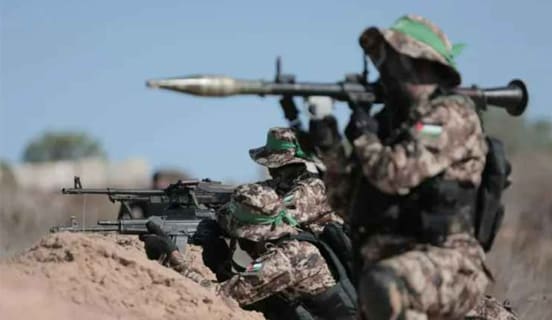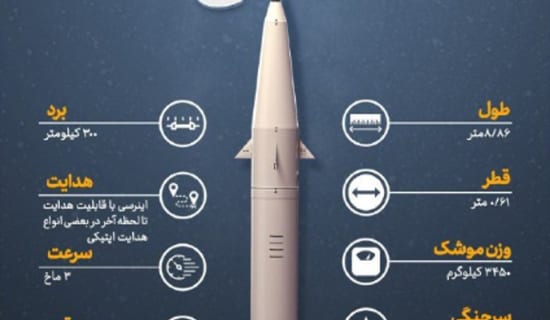In a January 17, 2024 article titled "The Middle East Is An Illustration Of A Transitional Process, When The Old Order Of Things Has Ended And There Is No New One"[1] in the Russian government daily Rossiyskaya Gazeta, Russian columnist Fyodor Lukyanov wrote: "By all accounts, the Middle East and the world have entered a long period of restructuring." Noting that "the American-British strikes on Yemen have not destroyed the fighting potential of the Houthis," he further commented: "there is something in the current cataclysms that distinguishes them from previous stages. Namely, the greatly reduced ability of outside powers, even the most powerful ones, to influence the course of events. Local players have much more room to maneuver.

The Russian government publishes Rossiyskaya Gazeta.
Following is a translation of the article:
"There Is Something In The Current Cataclysms That Distinguishes Them From Previous Stages... The Greatly Reduced Ability Of Outside Powers, Even The Most Powerful Ones, To Influence The Course Of Events – Local Players Have Much More Room To Maneuver"
"In an article for Rossiyskaya Gazeta, the author of these lines speculated last year: the series of conflicts that were unfolding in the world would continue, as they would all wake up or escalate in the face of shifts in the world order.
"The prediction is not a God-given one, it is quite logical. The world order, if it is maintained (i.e. accepted by the main players), is a framework, if you will – a bond that fixes contradictions and prevents them from growing. Of course, the recipe is not absolute, but it works in general terms. However, when order is no longer maintained, i.e. when those who have been doing it lose this ability, conflicts break free. The further depends on how quickly a new balance of forces and interests will be established, if it happens at all. And it is established not through amicable agreements, but in the process, when participants of international relations try, taking advantage of the opportunity, to achieve their own goals, often at the expense of others. Until there comes a realization of the constraints – internal or external ones – that force one to stop at something.
"The Middle East (or, if we use a more correct, though unfamiliar name, West Asia) is a vivid illustration of the transition process, when the old order of things has ended, and there is no new one and, in general, none is expected. The explosion of aggression in Palestine, when a Hamas attack on Israel triggered a major military retaliatory operation, was the starting point of another round of the reshaping.
"One will not daresay that the region was stable before that. The shake-ups there have never been interrupted, and the current upheavals have their roots in the events of the end of the last century (they, in turn, continue the chain that began a century ago). And yet there is something in the current cataclysms that distinguishes them from previous stages. Namely, the greatly reduced ability of outside powers, even the most powerful ones, to influence the course of events. Local players have much more room to maneuver. If we multiply this by high motivation (what is going on is more important for regional forces than for any external ones), the effect is impressive."
"The American-British Strikes On Yemen Have Not Destroyed The Fighting Potential Of The Houthis"
"In recent days, we have seen an aggravation in the Red Sea – the American-British strikes on Yemen have not destroyed the fighting potential of the Houthis. Continuation on both sides follows. Behind the Houthis, Iran is believed to loom. And it has become sharply more active as it is – targets hostile to Tehran in Syria, Iraq, and even Pakistan have been attacked. Iran is demonstrating its growing military and technical capabilities. At the same time, Turkey has gone on the attack – also in Iraq and Syria. Ankara again promises crushing blows against terrorist forces there, meaning Kurdish units.
"The problem of the Kurds, and this is the largest nation without its own state, has never let itself be forgotten. The United States' attempt to reorganize the region in the first years of this century has moved it into a new phase: two states with significant Kurdish populations – Iraq and Syria – were powerfully shaken. However, the second phase – the restructuring on new grounds – failed. As a result, everything has become even more confused, and the U.S. has no positive program in sight. At best, it is about plugging holes and fighting local fires; at worst, it seems that Washington is imitating activity for reasons of prestige.
"Local players – from Iran, Turkey, Saudi Arabia to Lebanon's Hezbollah and the Houthis – are behaving more and more confidently as they see the limitations of the international forces that previously exerted decisive influence. Even Israel, whose bond with the U.S. is critical to its security, is extremely reluctant to follow American requests and recommendations regarding the Gaza operation. More precisely, it does not deem it necessary to take into account the fact that the campaign is causing growing political tensions within the United States. Israel's bosses are dealing with their problems as they see fit.
"The foresight resulting from all of this is not very encouraging – no common grounds can be seen. Instability will continue to grow, because the deterrents are subjective and depend on how the situation is assessed by those directly involved in the events."
"By All Accounts, The Middle East And The World Have Entered A Long Period Of Restructuring"
"Here, however, a caveat should be made: the state of affairs in the region has particularly emphasized, to put it mildly, the gap between rhetoric and action. Thus, with the exception of the Yemeni Houthis, verbal outrage against Israel has not led to any concrete actions by Muslim countries in support of the Palestinians. The most telling example is Turkey – terrible curses from the mouth of President Erdoğan are heard daily, trade with Israel is growing. The paramilitary groups (the same Hezbollah) that constantly warn that their patience is at its limit and is about to run out, behave very deliberately and cautiously. From time to time, there are reports of intense behind-the-scenes diplomacy aimed at preventing excessive risks. And the topic of normalization with Israel in the spirit of the 'Abraham Accords' has not been removed from the agenda.
"There is no point in talking about any prospects. The year 2024 will bring additional touches to the picture, both militarily and politically. But by all accounts, we have only just entered a long period of restructuring. And not just in the Middle East.
"The U.S. and allies continued their attacks on the launching pads of Houthi missiles in Yemen. The EU plans to send three destroyers or frigates to the Red Sea as part of a military mission. Iran's Ministry of Foreign Affairs has said Tehran had nothing to do with the Houthis and did not control their actions. Iran's Islamic Revolutionary Guard Corps (IRGC) attacked bases of the terrorist group Jaish ul-Adl in Pakistan with missiles and UAVs. Islamabad sharply condemned the attacks, calling them a 'violation of sovereignty.' Iran and Pakistan were urged to show restraint by China, which expects the countries to avoid escalation. After Iran's missile attack on sites in Iraqi Kurdistan and northern Syria, Arab media reported that the U.S. had begun withdrawing soldiers from Syria's Hemo military base. The humanitarian situation in the Gaza Strip remains difficult. The Israeli army continued to strike Hezbollah facilities in southern Lebanon."
[1] Rg.ru/2024/01/17/svoboda-usilennogo-rezhima.html, January 17, 2024.








